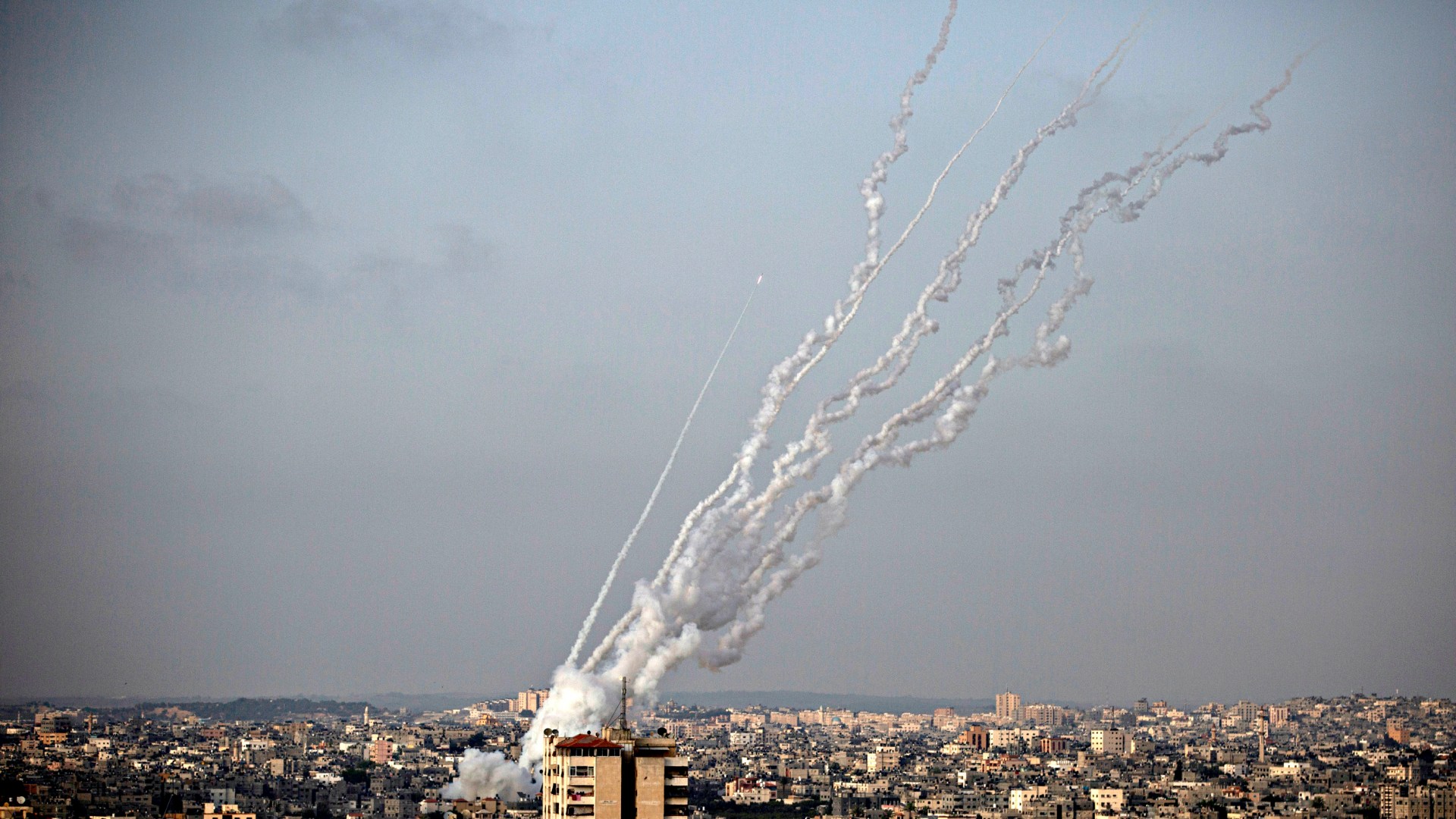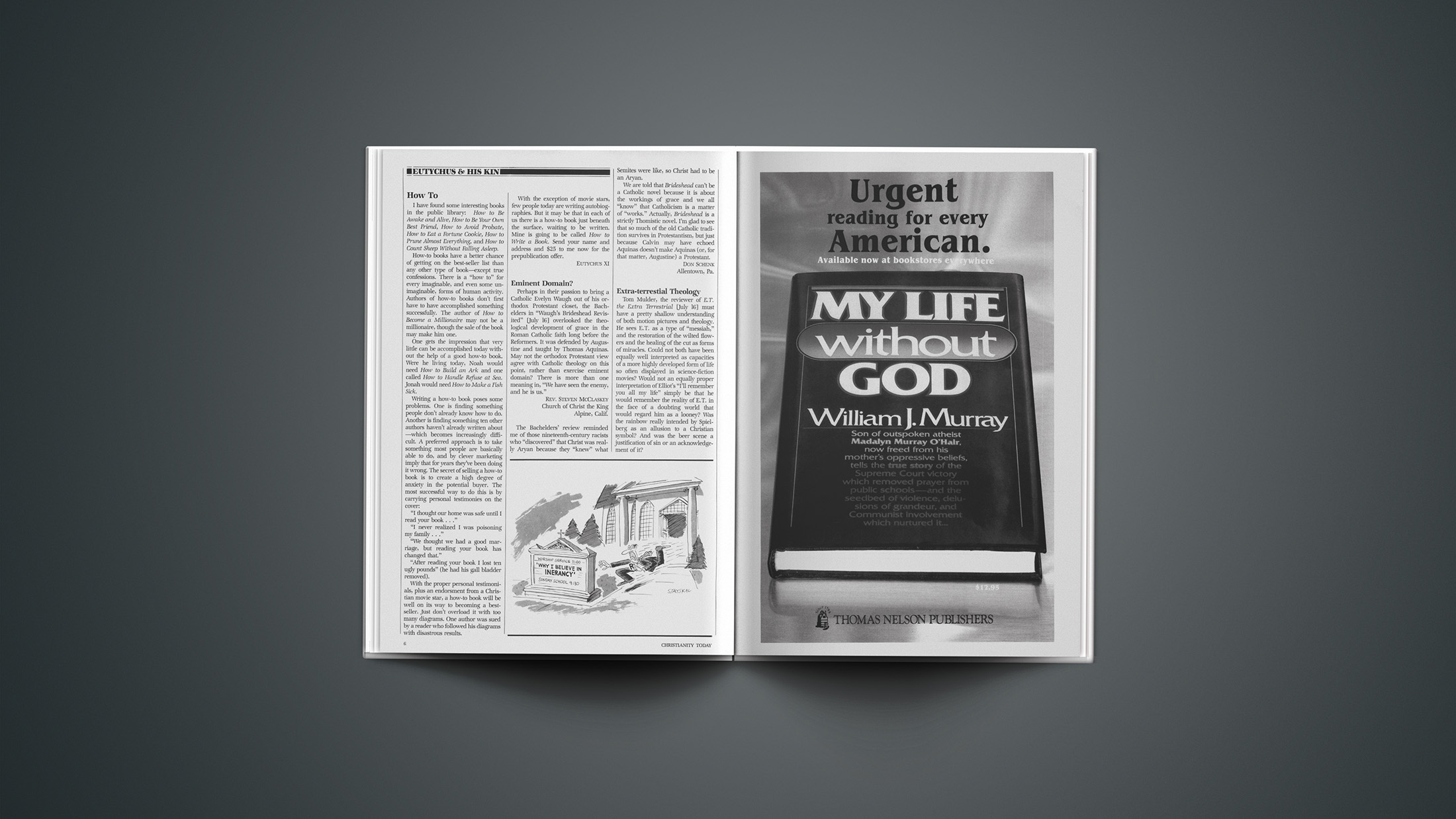Bombs fall in Gaza as rockets target Israel.
Frustrated Arab rioters are met by extremist Jewish settlers.
And in the middle of it all, Danny Kopp sent his boys out to play soccer.
Numbers were down at the Jerusalem neighborhood park frequented by Jew and Arab alike, but his 13-, 10-, and 8-year-old sons still translated between the sides.
“These encounters, as small as they are, remind belligerents that coexistence is still viable,” said the chairman of the Evangelical Alliance in Israel.
“Wholesale vilifying is simply inaccurate.”
But it is easy to do, if attached to a favored narrative.
Since the outbreak of fighting on May 10, Israeli bombs have leveled almost 450 buildings in Gaza, including six hospitals, nine health centers, and the headquarters of the Associated Press. Hamas authorities count 232 dead, including 39 women and 65 children. More than 1,900 people have been injured, and 52,000 displaced from their homes.
But 160 of these have been militant fighters, said Israeli authorities. Hamas’s indiscriminate barrage has launched more than 4,000 rockets and killed 12 people—including two children—while injuring hundreds. Israel’s Iron Dome defense system has intercepted most rockets, but Iranian sponsorship of Hamas has led to a dramatic increase in missiles able to target Jerusalem.
Such long-range weapons represent 17 percent of the thousands of missiles fired this month. Nine years ago, they represented only 1 percent.
A ceasefire is now in place. President Joe Biden pledged to work through the United Nations and the Palestinian Authority to rebuild Gaza. The US would prevent such aid from restocking Hamas’s arsenal, while allowing the replenishing of the Iron Dome’s defenses.
The weapons evolve, though the animosity is familiar.
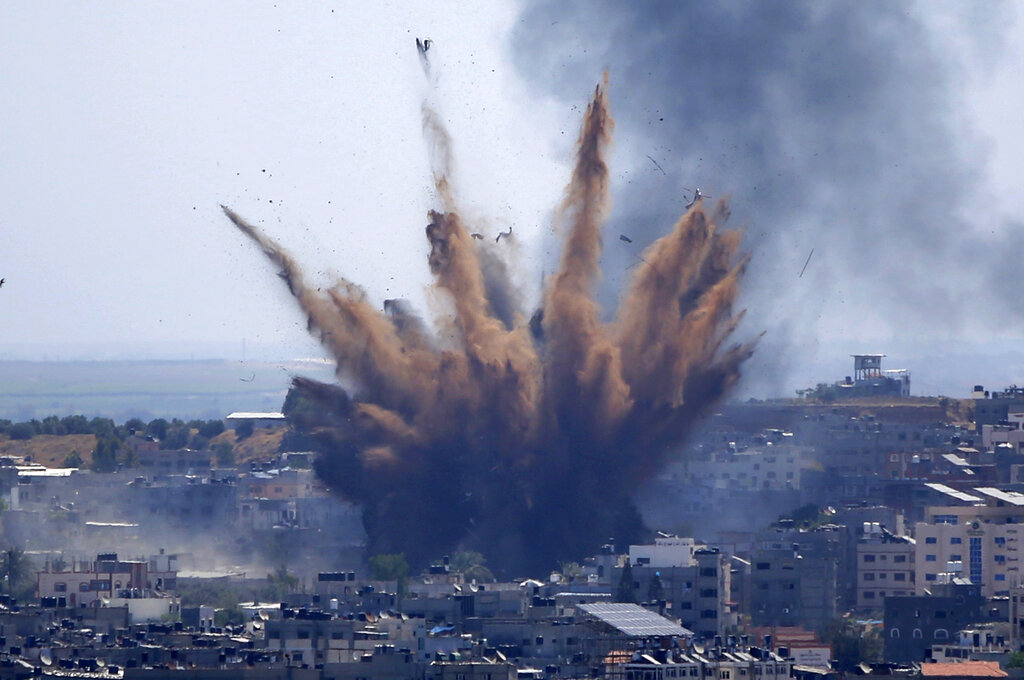
But what has shocked and saddened a dozen sources interviewed by CT—half Jewish and half Palestinian—is the ethnic violence that has torn through previously peaceful towns of coexistence. In Lod, Haifa, Nazareth, and elsewhere, Arab rioters have set 10 synagogues and more than 100 Jewish homes on fire, while looting or damaging hundreds more.
Israel called up 7,000 reservists to quell the violence. But reports say police have been far more lenient with Jewish settlers who have responded in kind, though with less damage. Video recordings, however, depict settler attempts to seize Arab Israeli properties.
The outbreak of violence is tied to Israeli legal proceedings to evict Palestinians from their homes in the East Jerusalem neighborhood of Sheikh Jarrah. The families have resided there for generations, and the land dispute has alternate explanations. Protests were met with violence, which then spread to the al-Aqsa Mosque. Hamas fired rockets in solidarity.
And amid the backdrop of this quagmire, Kopp sent out his children.
On Saturday, he preached the same message to his mixed Jewish-Arab Narkis Street Congregation in Jerusalem, asking his flock to purposefully hear both sides.
“Jesus constantly broke out of his information bubble,” he said, “engaging every kind of person imaginable and on a consistent basis.”
Across the separation wall, however, Munther Isaac’s Sunday sermon had a different tone.
“What is required is not calm and restraint,” said the pastor of Evangelical Lutheran Christmas Church in Bethlehem. “What is required is to call things by their names.”
This includes antisemitism, Isaac told CT. Yet he also highlighted the 2020 Jerusalem Declaration, created by Jewish scholars to clarify when criticism of Israel or Zionism crosses the line while specifying that criticism in itself is not antisemitism.
But Isaac’s focus was on “occupation” and “ethnic cleansing”—and “apartheid.” B’Tselem, a leading Israeli human rights organization, recently published that the state’s effective control of the West Bank and Gaza makes the controversial term appropriate.
Isaac then asked Palestinian Christians to act appropriately: with nonviolent resistance. And he asked believers in the West to likewise act: with vocal advocacy.
“Christ died a victim of raging violence and religious extremism,” he preached. “But because we believe in the Resurrection, the last word is justice.”
Such preaching, however, riles fellow Palestinian evangelical Khalil Sayegh.
“The Palestinian church response has been largely in line with our society’s polarized state,” said the Philos Project fellow. “One-sided narratives only inflame people’s anger.”
Born and raised in the Gaza Strip, Sayegh acknowledges the appropriate call for justice. But it is simultaneously necessary for each group to reach out to the other.
Israel and Hamas will eventually reach a ceasefire. But given the ethnic strife, popular wounds now run deeper than before.
“If we are not comforting each other while suffering,” Sayegh said, “we won’t be any closer to a solution when the situation begins to improve.”
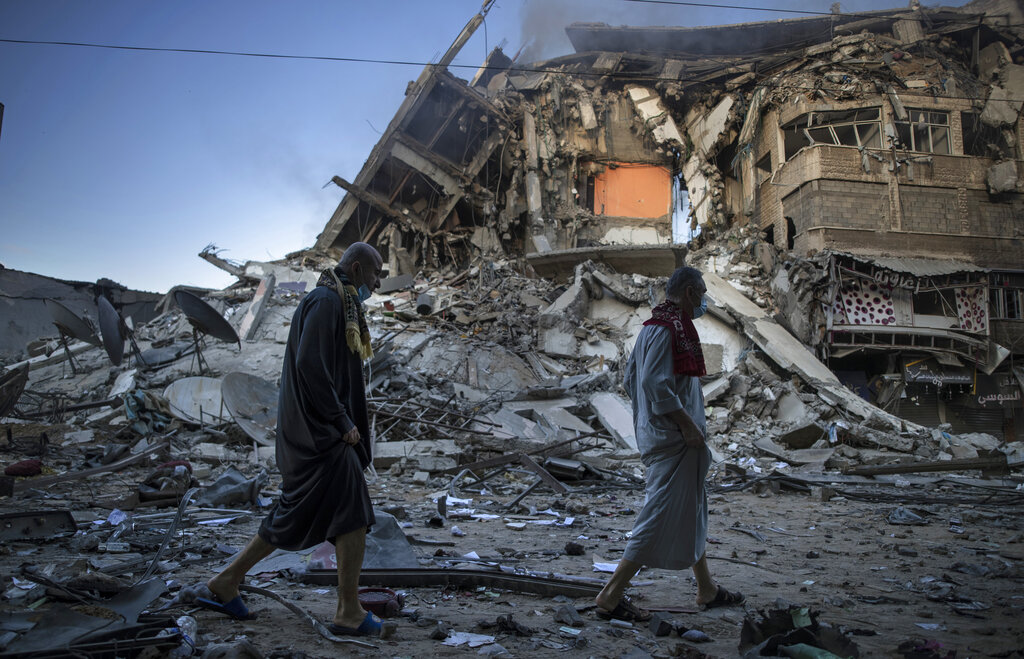
Sources told CT they are doing so, but the impact has been mixed. Sayegh has experienced a lack of empathy from some. Ron Cantor said a Palestinian Christian pastor sent him well wishes for his birthday.
But reconciliation is difficult.
“We have made attempts,” said Cantor, president of Shelanu TV, Israel’s only 24/7 digital Hebrew gospel channel. “But in all honesty, there is mistrust on both sides.”
This past Saturday, Messianic Jewish congregations preached against racism and for Arab-Jewish unity, Cantor said. The settlers provoking the violence are tied to a political movement he believes is rejected by the vast majority of Israelis.
But while most Arabs—who comprise a fifth of Israel’s population—and Jews get along, most Palestinian Christians do not believe in a unique divine role for Israel. And while Cantor understands—but rejects—their claim that Zionists stole their country, most Palestinians are at odds with what he says is a clear baseline standard.
“It is important that people stick to their Bibles and not the news,” he said. “Israel is a fulfillment of prophecy.”
But this does not mean Messianic Jews are without fear. Discipling believers in the Israel Defense Forces, Eli Birnbaum protects them from hate and resentment.
“Growing up in Israel, you get used to the fact that there is a group of terrorists who will kill you if given the chance,” said the Jews for Jesus Israel ministry director, noting this is not true of Palestinians at large.
“These rockets aren’t targeting the military; they are targeting my children.”
As such, Jews who believe in Jesus and who are frustrated with war have a recourse other than turning on political leaders or in anger toward enemies. Pastoring a small congregation in Tel Aviv, Birnbaum is preparing a sermon on 1 Samuel 30, in which David’s men wanted to stone him after the Amalekites burned Ziklag and took captive their wives and children.
“David turned that frustration toward prayer,” said Birnbaum. “And ultimately, Jesus gave his life on the cross so that we can be strengthened in him no matter the circumstance we are in.”
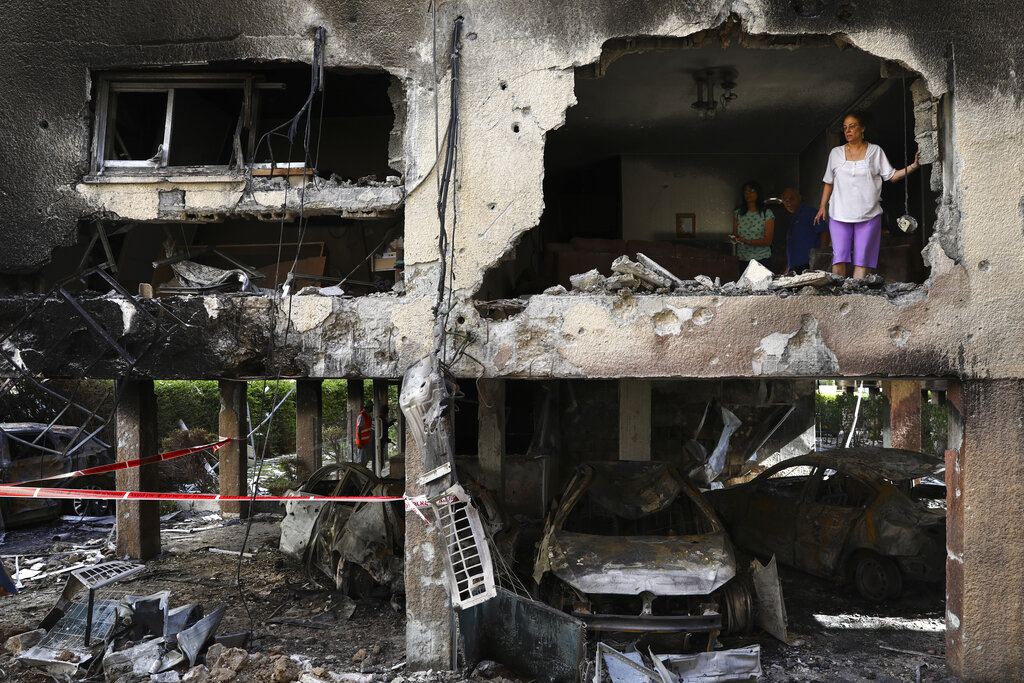
But this does not take away the “disgust” most Messianic Jews have for Hamas and its disdain for both Jewish and Arab life, said David Friedman.
In contrast, in their fellowships Jewish and Arab believers are praying together—without blame.
“I am impressed with the sincerity of our unity,” said the Messianic Jewish Theological Institute professor and former dean of King of Kings College in Jerusalem.
“No matter what side of the political spectrum we may be on, the current rocket war is no breaking point.”
Similarly, David Katz, deputy general manager of Sar-El Tours which serves many evangelical clients, said he believes most Messianic Jewish congregations would justify Israel’s response to Hamas attacks on Israel. Many Messianic Jews live in Ashkelon and Ashdod, within range of the shortest-range missiles.
But they are also praying for Gaza, mourning the loss of life and longing for a lasting solution to the conflict.
Katz attended the solidarity rallies that followed the violence. Arabs and Jews in mixed neighborhoods came together to clean up their streets, repair damage, and raise money for the victims. In Jerusalem, they created a “peace chain.”
Solidarity, however, can go only so far.
“We extend love and prayers, but don’t go too deeply into the source of the conflict,” said Katz. “Now is not the time for that discussion.”
Lisa Loden, with much frustration, agrees.
“At this stage, talking with those who hold different political views is useless,” said the co-chair of the Lausanne Initiative for Reconciliation in Israel/Palestine (LIRIP).
“It is a time for intercession and lament. May the Lord have mercy on us all.”
Beginning in 2010 after a similar surge in Gazan missiles and deaths in 2009 strained ministry in the Holy Land, LIRIP sought to have honest but intense discussions about the different perspectives Messianic Jews and Palestinian evangelicals have toward the conflict.
A decade later, Loden sees this relationship nearer a breaking point rather than getting better. Though believers sing and pray in each other’s languages, “what was gained is at risk of being lost.”
Her LIRIP co-chair, Botrus Mansour, is a little more optimistic.
His recent interactions with Messianic Jews have encouraged further work toward reconciliation. As director of operations of Nazareth Baptist School, Mansour said joint programs with Jewish schools help promote the values of love and tolerance.
The same atmosphere is present at Hand in Hand School, a mixed bilingual public school in Jerusalem. Parents called frantically, said the principal, worried about the impact of clashes.
Looking outside her window, she saw the students playing soccer.
Other youth, however, are moving the wrong direction.
In February, Hebrew University polled over 1,000 students ages 16 to 18. Nearly half of the ultra-Orthodox and religious nationalist Jews said they “hated” Arabs, and favored stripping their citizenship.
Nearly one-quarter of secular Jews said the same.
Arab Israeli students polled at 22 percent hatred toward the religious Jews and 12 percent toward secular Jews. But in March, the Palestinian Center for Policy and Survey Research found 37 percent of all ages favored armed resistance.
“The atmosphere is polluted with racism,” said Mansour. “It starts from leaders of Israel and goes down to the regular people.” He urges more examination of the root causes of the violence versus the current focus on the symptoms.
Shadia Qubti, co-producer of the Women Behind the Wall podcast, which uses storytelling to highlight the experience of female Palestinian Christians under occupation, said Palestinians have been suffering from years of political incitement and dehumanization.
“If you are tired of this repetitive news from Israel and Palestine, I sympathize with you,” she said. “As your Palestinian brothers and sisters, we are weary of enduring it.”
The human rights organization Adalah—meaning justice in Arabic—counts 65 discriminatory laws in Israel, roughly half of which have been enacted since 2009.
For Loden, this is the main cause of the riots.
Arab Israelis face inequality and an unspoken second-class citizenship, she said. This was enshrined especially in the 2018 nation-state law that made primary the Jewishness of Israel.
“The pain, anger, and sense of betrayal in the Arab community has not been addressed,” Loden said. “It was buried.”
And Christian youth are growing frustrated with their churches, said Salim Munayer.
“Most evangelical churches have limited their message to ‘let us pray for peace,’ and some claim they don’t want to get involved in politics, sticking only to spiritual matters,” said the executive director of the Musalaha reconciliation ministry, based in Jerusalem. (He explains more on CT’s Quick to Listen podcast.)
“The silence is loud.”
Stuck in their own narratives, the youth turn to social media. There has been some interaction between communities, and Munayer has seen discussion of proper politics in view of the gospel message.
But on the ground in mixed cities, the reality does not facilitate reconciliation. The government, he said, has actively placed Zionist yeshiva students there to “Judaize” the neighborhoods.
Jack Sara, president of Bethlehem Bible College, said that the coexistence touted in mixed cities was never built on peace and justice, only pragmatism. Reconciliation cannot be built on unequal relationships.
For example, the government invests $8,000 per year per Arab high school student in these areas, compared to $13,000 per Jewish student.
Sara cited Sheikh Jarrah as an example of Judaizing efforts. Like the biblical Ahab and Jezebel, Jewish settlers found a “legal” way to steal land.
“Today, the Palestinians are calling for ‘Elijahs’ of the world to confront ‘Ahab’ for his crimes,” said Sara. “If so, maybe he will repent and return what he has stolen.”
But whereas Isaac called against calm in the face of injustice, Sara—equally resolute in an open letter as Middle East coordinator for the World Evangelical Alliance—appreciates joint efforts seeking to tone down the anger.
The Board of National Pastors and Elders in Israel released a statement.
“In light of the current situation … [of] polarization and hatred between Arab and Jewish citizens, we Israeli Jews and Arabs, who share the same faith in Jesus as Messiah and Lord: declare that we are united in brotherly love,” they stated, expressing their agony. “With blessings and hope for quieter and better days.”
Arab churches have conducted online prayer gatherings asking God to protect both Arab and Jewish towns. Jewish congregations have asked God to intercede for both communities.
Jamie Cowen, a Messianic Jewish lawyer, said that in his congregation, the leader testified that God had changed his heart toward Arabs when he first became a believer.
“For those I’m in touch with, there’s a sense that something needs to change in the country,” he said, “to heal the wounds and deal with the Palestinian issues.”
For Katz, active in the peace movement, this will not be easy.
Jewish settlement expansion in the West Bank has made a two-state solution nearly impossible. But a one-state solution will present demographic problems for the Jewish state, as all Palestinians under their control must be given passports and the right to vote.
“Reconciliation, equity, and respect between the sons of Abraham,” Katz said. “That’s a big call. But it’s what we need.”
And it will not happen, said Kopp, unless creative solutions can be found to address the core concerns of each group. God has a unique calling for both Jews and Palestinians.
But each must give up their treasured narratives in joint pursuit of the truth.
Hamas’s indiscriminate rocket fire should not be equated with Israel’s precision-seeking self-defense, he said. But neither should Israel’s flawed democracy be considered above reproach.
And until consensus is found, a soccer ball will help.
“It’s a mundane, Sisyphean effort of tiny strides,” Kopp ended his sermon to his congregation.
“But it’s the only way to reduce our striving for greatness, and end up the humble, peacemaking, and merciful children God wants to see in his kingdom.”
Additional reporting by Jeremy Weber

